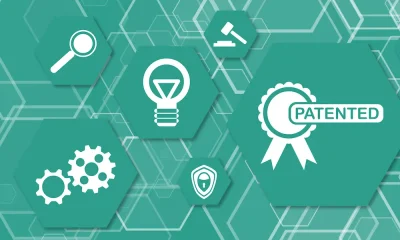General
The Future Of Work And Job Loss Anxiety

Are you worried you may lose your job soon? You’re not alone. Many workers are regularly thinking about what they’d do if they lost their job today, which is the primary source of anxiety. Needless to say, workers worrying about losing their jobs is not suitable for their mental well-being or their job security. Employers are not getting an easy ride either, as distracted workers dent productivity and make it hard to run a business.
Job Loss Anxiety
What’s causing the anxiety in workers, and what can they and their employers do?
There are many reasons employees are fretting about their employment. One is the future of work – so let’s learn more about what the future of work is and what workers and employers can do to manage its disruption.
The Future of Work
Gartner says the future of work has been reinvented to deal with the challenges of today, including:
- Digital transformation
- Company culture
- Workplace reinvention
- Hybrid workforce
The future of work and everything it represents, i.e., technology and economic and social shifts, are rapidly changing just about everything in business, disrupting business operations and productivity.
Digital Transformation
While digital transformation is exciting as it improves processes, there’s no denying the job losses to technology like automation and AI. However, businesses can manage the disruption to employees with clear communication and support, including assisting staff who will lose their job.
We all want to be in control of our lives and careers. Where there is no clear path to another role within the business, companies can go the extra mile to provide healthy redundancy packages that include recruitment consulting to fast-track existing employees into their next job.
Company Culture
Businesses are worried about brand reputation and how the future of work is reshaping their company culture. How a business supports existing employees will affect staff sentiment and productivity. Plus, the services delivered to customers and the overall feeling about the company’s culture.
Today all companies must have a DEI (diversity, equality, and inclusion) policy for hiring and managing staff.
However, businesses may lack communication, knowledge sharing, and employee training on DEI requirements.
Managing biases among staff is a top priority for HR. Inadequate team cohesion and unity can erupt into discontent, where misinformation can get a grip and undo the good work done to create an inclusive company culture.
Workplace Reinvention
One transformation that’s disrupted workplaces and employees is adopting remote working for at least part of the week. Also, the employment of remote offshore workers who will rarely be present in the physical workplace.
Half-empty offices and lack of in-person contact have affected workers’ mental well-being. Loneliness at work affects worker confidence and productivity. Gallup says management has a role to play in reducing loneliness, including:
- Teamwork and projects that build social bonds among employees
- Peer respect and recognition
- Coaxing friendships
Use Microsoft Teams, Zoom, Whats, App, or your preferred collaboration tool to encourage weekly team meetings for all workers wherever possible. If you’re feeling lonely while you’re in the workplace, here are some actions you can take:
- Take a break, go outside for some fresh air
- Go to the social room, make tea or coffee
- Do a good turn for someone at work
- Arrange to have lunch with a colleague or friend
Hybrid Workers
Dealing with the introduction of robot workers and a hybrid workforce can be challenging for human employees.
Businesses neve a communications plan that informs and supports workers impacted by a robot co-worker or uses software that replaces a human co-worker. Both these situations are unsettling to some employees. For example, friendships are formed and may be lost when the worker is replaced by AI or automation leaves the company. Plus, who knows what it will be like to have a robot manager?
Economy
Negative sentiment about the economy and if your employer is planning staff layoffs will be disruptive and cause job loss anxiety.
Businesses can help dampen this response by communicating their take on how the state of the economy, both local and global, positions the company. What employees look for in management is leadership and a plan of action to navigate uncertain trading conditions.
If you’re worried about the effects of high inflation on your job security, do your own research online.
Learn about economic cycles, including when they are expanding, peaking, or shrinking. Investopedia is a good site for the layperson. The more you learn about how trade and economies function, the more confidence you’ll have in taking control of your reaction to change in your employment and throughout your career.
Final Thoughts
No one can stop change. Nor can we prevent disruption caused by the future of work. Whether you are the owner managing a business or an employee, you have a role in improving communication to avoid thoughts that tcompanyess is failing.
The strategies and actions mentioned in this article can assist in overcoming the fear of the unknown associated with the future of work, including job loss anxiety.









